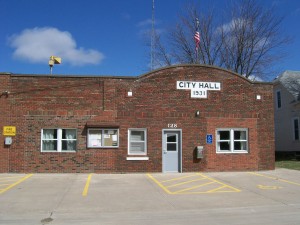Tax grab: Iowa county’s residents forced into funding city hall they won’t use

By Paul Brennan | Iowa Watchdog
DES MOINES, Iowa — Taxpayers all across Scott County will help Walcott pay for a new city hall, whether they want to or not.
Walcott intends to use up to $1.5 million raised through tax increment financing to build a new city hall. The final cost of the project hasn’t been determined.
Tax increment financing allows a city to use property taxes generated by an improvement, like a city hall, to pay off the bonds that financed the project. Normally, 30 percent of all property taxes collected in Walcott would go to Scott County and local school districts.
“No city in the county has ever used TIF money for a municipal building before,” Scott County Administrator Dee Bruemmer told Iowa Watchdog. “They’ve all paid for such buildings themselves. It hasn’t been considered an appropriate use of TIF funding.”
The Scott County Planning and Development Department objected to funds that should go to the county being used “exclusively for the benefit of Walcott residents.”
Although the county may object, it can’t do anything to stop Walcott. The city needs only a majority vote of its council to use TIF. Last year, the city took in $696,268 in property taxes to pay off bonds from other TIF projects.
While economic development is the official reason Walcott is using TIF funds for its new city hall, Mayor John Kosticheck told Iowa Watchdog the TIF will make sure “we’re not going to raise taxes on our citizens.”
WALCOTT’S CITY HALL, OTHER PEOPLE’S MONEY: By using tax increment financing, the city of Walcott will be able to use money that would go to Scott County and local school districts to pay for its new city hall.
The current city hall is old and cramped, Walcott City Clerk Lisa Rickertsen told Iowa Watchdog.
“It would enhance the economic climate of the community to have a new building, and state law allows us to use some TIF money,” Rickertsen said.
Iowa State University economist David Swenson, considered an expert on tax increment financing, said “this is just another example of the promiscuous use of tax increment financing.”
“TIF was originally intended to help cities clean up urban blight,” Swenson said. “But in the 80s, the Legislature expanded its use, so it can be used for economic development. In the past 10 years, cities have increasing defined ‘economic development’ to mean doing anything they want to do.
“It was never envisioned that TIF money could be used for municipal buildings,” he said.
Eldridge, another city in Scott County, has a city hall that’s old, cramped and has a leaky roof. Eldridge on Tuesday held a referendum on increasing property taxes to pay build a new city hall, but voters rejected the increase.
Eldridge never considered using tax increment financing to replace city hall, City Administrator John Dowd told Iowa Watchdog.
“From the beginning of the process, we promised citizens that we would do this in a responsible manner with their full input,” Dowd said. “Tax increment financing wasn’t an appropriate way to fund this. It’s a matter of trust.”
Contact Paul Brennan at pbrennan@watchdog.org







